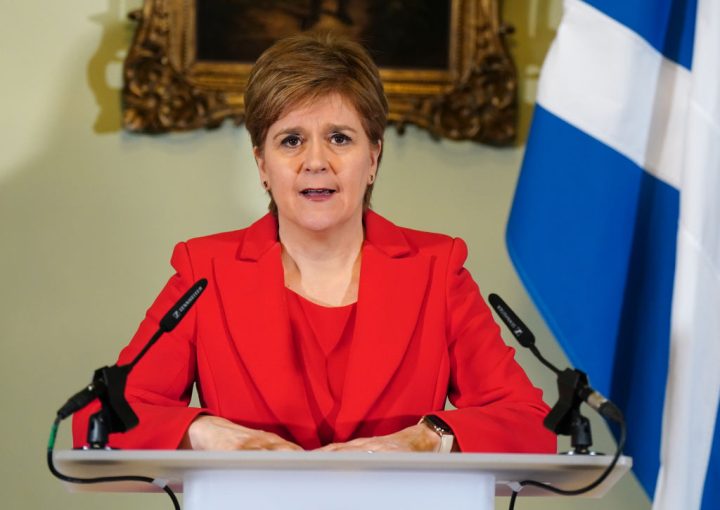Nicola Sturgeon has confirmed her ‘intention’ to resign as First Minister, staying in office until her successor is elected. She said she had been wrestling with the decision for ‘some weeks’.
Sturgeon sounded emotional as she opened by saying First Minister was ‘the best job in the world’ and a privilege that had ‘sustained’ her. She explained that ‘part of serving well would be to know almost instinctively when the time is right to make way for someone else’, and that she knew that this time had come now. ‘Be in no doubt, this is really hard for me. My decision comes from a place of duty and love,’ she added. Her reasons for quitting did not include a ‘reaction to short-term issues’, a coded reference to the row over Isla Bryson and gender recognition reform.
Sturgeon has not achieved Scottish independence, and has serious questions to answer on health and education
She said she had considered whether continuing was the right thing for the independence movement, a question that has been increasingly asked by those within the movement, as well as its critics. The gender reforms had exacerbated the already growing split within the movement, and within the SNP itself. She had faced accusations from her predecessor Alex Salmond that she was undermining the movement’s main cause with the gender reforms, and her press appearances became dominated by the question of whether Bryson was a woman, a man, or, as she preferred to put it ‘a rapist’.
She referred to this, saying a new leader would be ‘better able’ to ‘reach across the divide’ in politics, someone who wasn’t subject to ‘quite the same polarised opinions… as I am’. She felt caricatures of her were being used as ‘barriers to reasoned debate’ over simple and complex issues.
What does she see as her legacy? She has not achieved Scottish independence, and she has serious questions to answer on health and education. Sturgeon described leading the country through the pandemic as the most difficult period of her tenure. Saying there would be time to reflect on what had been achieved, she listed childcare, the baby box, the nebulous 'Scotland is fairer today' when it came to taxation and benefits, stronger protections for domestic abuse victims, and creating new agencies and trade hubs. 'Eight emphatic election victories in eight years ain't a bad record,' she added.
Much of her tone was defensive, trying to argue away suggestions she was quitting when the going had got tough. But the difference between this particular tough going and the many previous ones is that the wheels were starting to come off the previously untouchable Sturgeon herself.







Comments